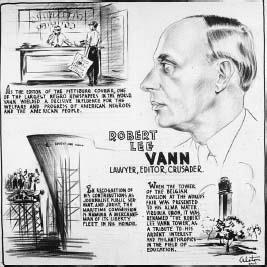JournalismPress Correspondents and Journalists |
What journalist was the first full-time black reporter for the Washington Post? |
Journalist Simeon S. Booker (1918–) was the first full-time black reporter for the Washington Post, from 1952 to 1954. In 1982 he was the first black to be awarded the Fourth Estate Award by the National Press Club in Washington, D.C. Booker began his career as a reporter for the Baltimore Afro-American. During the 1950s he was a reporter for the Cleveland Call and Post. He left the Post in 1955 to work for the Johnson Publishing Company; he later became its Washington bureau chief. His reports of civil rights activities were highlighted in 1955, when he covered the trials of the men who lynched Emmett Till in Mississippi. He rode with the Freedom Riders in May 1961—the only journalist to do so—to protest segregated facilities on interstate bus travel. Although he was not harmed when the riders were attacked in Anniston, Alabama, he witnessed the beatings first-hand, reported the attacks to Attorney General Robert Kennedy, and later wrote about the experiences in Ebony magazine. He continued to write about the civil rights struggles of the 1960s and early 1970s. Booker interviewed U.S. presidents, a number of senators, and other Washington leaders and wrote about the interviews in his column “Ticker Tape U.S.A.” Born in Baltimore, he and his family moved to Youngstown, Ohio, when he was five years old. He graduated from Virginia Union University in Richmond and did graduate study at Cleveland College. In 1992 Booker became the second black journalist to receive the Nieman Foundation Fellowship for study at Harvard University. The next year the Washington Association of Black Journalists presented him the Career Achievement Award for groundbreaking service in the field of journalism. The National Black Media Coalition, in 1998, awarded him the Master Communicator’s Award.

An illustration honoring Robert Lee Vann, who championed social change for African Americans as the editor of the Pittsburgh Courier.
